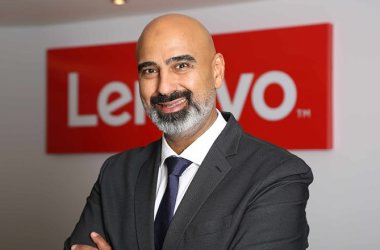
The IT market has witnessed a change in direction recently and the increased need for systems integrators to sweep in and smoothly oversee complex transitions for businesses big and small has become more and more vital – their services keep the emerging market rising.
These days, businesses are looking for not only an integrator to help implement solutions which they may be on the lookout for, but also to provide support and management in the time that follows. With many companies opting for best of breed and best of suite solutions, the race is on for vendors to be as competitive as ever with their products and services.
Key services that businesses have shown most interest in over the past year have been; disaster recovery, due to the ever increasing threat landscape, LTE deployment, for moving towards 4G networks, cloud projects, whether hybrid solutions or publically managed SaaS, and outsourcing projects.
What kind of businesses are looking for these services, and what will the demand be like in the coming year?
“We are seeing an increased demand for our services from large scale government led projects like airport expansions and eTransformation projects,” says Mohannad Jabateh, Sales Manager, Smartworld.
“Mobile operators will focus their investments around three main topics: understanding and managing the customer experience, monetising investments in the mobile data infrastructure and increasing the efficiencies of their operations,” says Klaus Middeler, Head of Strategy and Market Development, Operations and Business Support Systems, Ericsson, Middle East.
“Vendors will need to proactively think of ideas, solutions and best practices to address these issues. SI players need to be trusted advisers as well as integration partners.”
Dominic Docherty, Managing Director, BIOS Middle East, sees another kind of theme making ground.
“Managed services will become a big growth area during 2013, especially as companies begin to realise the scale of economies that service providers can offer. Anywhere that has a branch office and currently has a full time IT manager or administrator can benefit,” he says.
A major area of focus, at any time in business, is cost cutting and reducing outgoings. Using best of breed solutions can help with total cost of ownership, this trend is highly adopted as well as now, more recently, best of suite. How do these types of transactions affect the SI market?
“Ongoing consolidations are shaping the market for telecommunication vendors. Room for small, niche players has decreased, and SI partners are required to deliver end-to-end,” says Middeler.
“The trend from best of breed to best of suite is favouring software companies like Ericsson, who are able to design their roadmaps to deliver pre-integrated solutions more efficiently.”
Jabateh believes that the want of multi-vendor solutions has played its part in the growing health of the SI market.
“Companies and organisations in the region are now making use of multi-vendors as a main driver in enhancing the total cost of ownership and the quality of services, which has in turn, given customers more options to choose from.”
And as Docherty says, this collaboration and commitment to providing the best overall solution for the customers isn’t just a passing phase.

“Multi-vendor solutions are nothing new, and they aren’t going to be going away any time soon. If you want to really meet the needs of your customer, you have to choose the solution that is right for their unique goals and objectives,” he says.
“Sometimes a single vendor solution will be right for them, but often it won’t be. If you take virtualisation for example, you often require two-three vendors’ solution to be able to offer a comprehensive product that addresses a customer’s needs. In addition, there are certain vendors that don’t offer a full set of solutions. For example, there are pure storage vendors that done offer compute or networking solutions and vice versa. In these situations reference architectures such as Flexpod or vSpecs, and at the upper level converged solutions from the likes of VMware, Cisco and EMC can act as a single vendor solution. We partner all three of these for just this reason.”
Partnering up
With the added complexity of recent technologies such as cloud services, sophisticated security measures, BYOD strategies and mobility applications, partnering up for successful deployments and seamless integrations is still a crucial step in ensuring professional, fast and high quality services.
“The need for partners is vital. Even in accounts that are handled directly by the vendors, they still require a partner to install and configure and support a solution,” says Docherty.
Ericsson’s Middeler maintains, also, that the partnering of companies will continue to be a vital piece in the puzzle.
“Today’s system integrators must be able to manage a complex supply chain composed of various players,” he says.
“Local competence, off-shore delivery, business process consultants and vendor-specific SI all need to play together to deliver an integrated solution. Isolated engagements are rare, and the capability to work with partners for cost efficiency or to complement skill sets is paramount.”
And Jabateh adds to this, stressing the point that due to the increase of sophistication throughout IT services in recent years, partner excellence remains a must.
“Consequently, there will always be strong need to find the right partners in implementing new services. This is most especially true in addressing IT needs as demands have become more sophisticated and also more specific.”
Emerging needs
The Middle East continues to grow and expand and the emerging market owes much to the skill and pace and of major vendors and their increasing dedication to the region. It looks like it’s going to be a very exciting year for the Middle East and systems integrators will continue to play their part in the buzz. How will the upcoming trends and services impact the current set up?
“At the end of the day, all efforts will result in a better and more diverse product offering towards the consumer. In the background, we will see further consolidations of product and services vendors and streamlined operations of networks,” says Middeler.
“The emergence of these new services will have a clear impact on the operational aspects of today’s companies, enterprises and organisations. In addition, these new services will also impact on the skills set needed in implementing and operating these services—resulting in an increased demand for ICT products and services in the Middle East,” adds Jabateh.
Docherty at local company BIOS extends this point, personally demonstrating how such services help companies.
“These services can help companies reduce their overheads, while gaining scalability and business agility. Companies invest in technology for two main reasons, either to save money or to make money with new services/offering – technology for the sake of technology is not part of our message.”
We have seen many big trends come and go in IT, however, never has IT in itself been used so much as a service. Therefore, SaaS and IaaS have completely changed the way that systems integrators operate.
The Middle East will continue to seek out the best services and attempt to improve its standing as a region across the globe. How effective have recent services been to Middle East companies?
“Recent studies have shown that the most effective services are IT managed services and consolidation efforts to improve overall IT service levels/quality to a business. Also identified as effective are initiatives to utilise IT to reduce corporate running costs and reducing the cost of IT itself, which positions IT infrastructure as energy efficient tools,” says Jabateh.
Middeler makes the case for another service: “Where cloud is the most bespoken service, outsourcing is the most successful,” he says.
“Some operators believe managing their customer is more important to them then managing a network.”
2013 is shaping up to be another year of big investments for Middle East companies as they attempt to build on a very successful 2012. The economy continues to improve and businesses continue to splash out on high calibre products and solutions in order to keep one step ahead of the competition – competition which presumably will also continue to grow.





